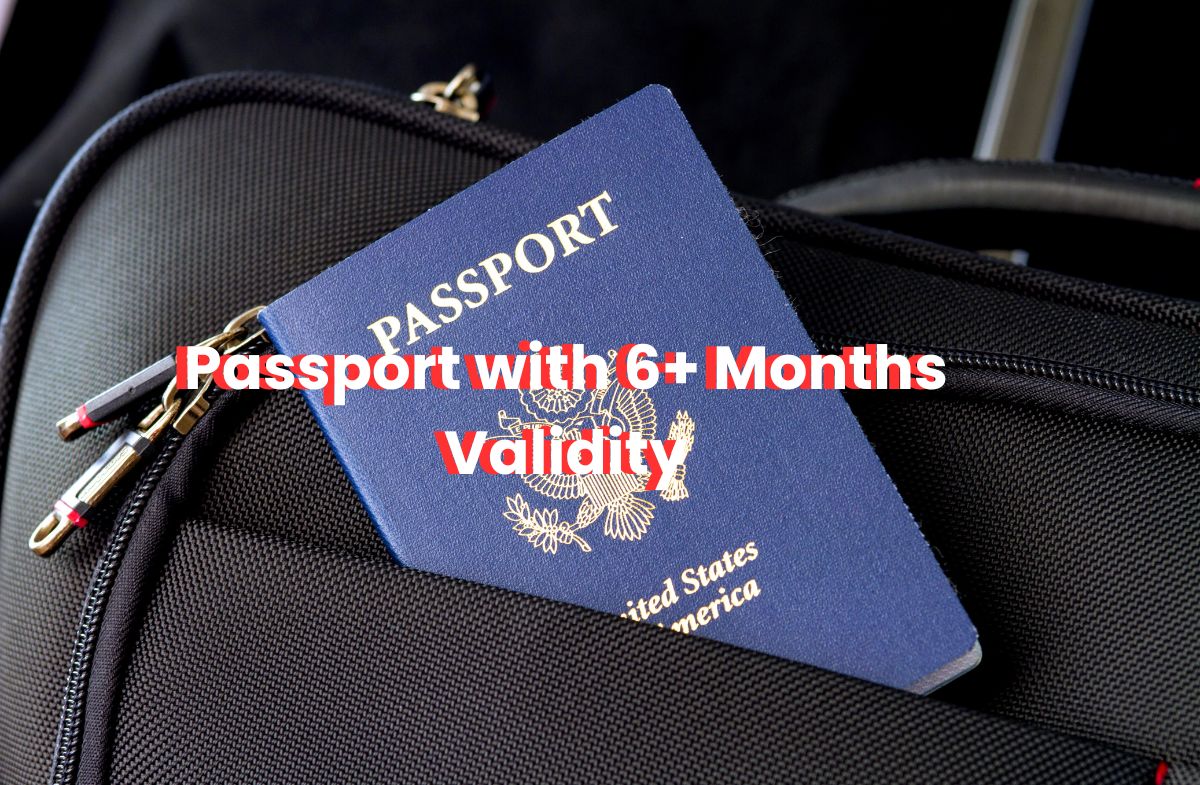Dreaming of exploring the world in 2025? Whether it’s chasing the Northern Lights in Iceland, savoring sushi in Japan, or hiking the stunning trails of New Zealand, international travel is calling your name.
But before you book those flights or pack your bags, there’s one critical detail you can’t overlook: your passport must have at least 6 months of validity beyond your planned departure date for many destinations.
This small but mighty rule can make or break your travel plans, and I’m here to guide you through why it matters, how to prepare, and how to avoid travel hiccups.
Why the 6-Month Passport Validity Rule Exists?
You may be wondering why so many countries enforce the 6-month validity rule. The answer is not only bureaucracy, but also to ensure smooth and safe travel. Here’s a breakdown:
- Entry Requirements: Many countries require that your passport be valid for at least six months after your date of entry or departure. This includes popular destinations such as Thailand, Singapore, and Australia. This rule will ensure that you have a travel document valid for the entire duration of your trip, as well as a buffer in case there are any delays or flight cancellations.
- Prepare for an Emergency. Imagine yourself stuck in a foreign country due to a medical emergency, unforeseen political events, or calamity. If you have a passport that is valid passport, it will allow you to travel abroad or come home safely.
- International Agreements The 6-month rule was adopted by many countries as part of the recommendations made by the International Civil Aviation Organization. This standardization and reduction of risks at border crossings is a goal for all countries.
Failure to comply with this requirement could lead to your being denied entry or boarding at your destination. Both scenarios are stressful and expensive.
Which Countries Enforce the 6-Month Rule?
Many popular destinations will enforce the 6-month rule in 2025, even though not all countries do. The following countries require that your passport is valid for at least six months after your date of entry or departure (always verify specific requirements before traveling).
- Asia: Thailand, Singapore, Indonesia, Philippines, Malaysia, China, India
- Europe: Denmark, Italy, Spain, Greece, Portugal
- Oceania : Australia, New Zealand
- Africa: South Africa, Kenya, Egypt
- Middle East: United Arab Emirates (UAE), Qatar, Israel
It’s better to be cautious. Some countries like Canada and Mexico may only require 3 months’ validity, or even no validity beyond your trip. If you plan to travel to multiple countries (say from Thailand to Singapore and Australia), then the strictest rules apply.
Use official travel advisories to check each destination’s requirements for entry, such as travel.state.gov from the U.S. State Department or the Foreign Office’s website in the UK.
How to Check Your Passport’s Validity
It is easy to check the validity of your passport, but it’s important.
Find the Expiration date: Open the passport and go to the page with your personal information. The expiration date will be printed, and is often labeled as “Date Expiry” (or “Valid until”)
Calculate six months from your travel date: For example, if you are traveling in August 2025, then your passport must be valid at least until February 1, 2026. It’s time for a passport renewal if your passport expires earlier than that!
Use Tools Apps such as Passport Index and VisasHQ will help you to track the validity of your passport or check visa requirements at your destination. These tools can be especially useful for frequent travelers.
Pro tip: Take a picture of the information page in your passport and save it to a cloud-based service (like Google Drive, iCloud or Dropbox) so you can easily access it while on vacation.
Avoiding Common Passport Pitfalls
Here are some tips for 2025 travel beyond the 6-month rule to avoid your passport causing you problems.
- Check the Blank Pages Some countries like South Africa require at least 2 blank pages to stamp visas. Having too few pages can cause entry problems.
- Protect your Passport Use a waterproof, padded passport holder to avoid damage. A damaged passport can be invalid and cause delays or rejections.
- Store Copies: Keep a copy of your passport in a safe place. If your passport is stolen or lost abroad, you can use this information.
- Be aware of the rules in your destination. Some countries may have specific requirements such as visa types or proofs of travel. To avoid any surprises, research these requirements in advance.
Pairing a Valid Passport with Smart Travel Planning
Travelling with a passport that is valid for at least six months is the first step to a stress-free trip. Here are some tips to help you plan your adventures for 2025.
Book Flexible Ticket: Choose refundable or changeable hotel and flight bookings in the event of cancellations or delays. Booking.com and Expedia are platforms that often emphasize flexible options.
Travel Insurance Protect yourself from unexpected situations like medical emergencies and trip cancellations. World Nomads and Allianz provide comprehensive international travel plans.
Stay informed: Join travel communities and follow travel advisories on platforms such as X for real-time updates. Posts on X, for example, often include first-hand accounts of passport issues and entry requirements.
Pack Smart: To stay organized, pair your passport (valid) with a travel checklist that you have prepared. Include the essentials such as chargers, adapters for travel, and health documentation (such as vaccination cards, if necessary).
Why This Matters for Your 2025 Travel Goals?
A valid passport will get you anywhere in the world, whether it’s a relaxing getaway to Iceland’s Blue Lagoon or a cultural experience in Kyoto, Japan, or an adventure in South Africa.
It may seem trivial, but ignoring the 6-month rule can result in missed flights, cancelled plans, and unneeded stress. You can prepare for 2025 adventures by checking your passport, renewing it early, and staying informed.

